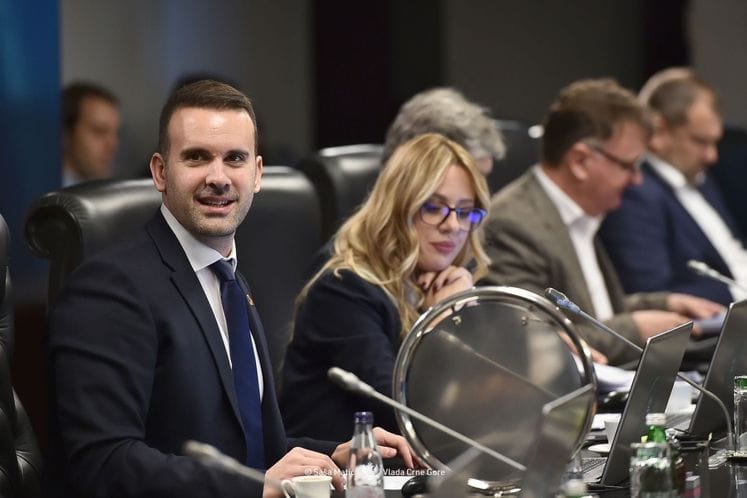- Government of Montenegro
Press release from the 56th Cabinet session
Press release from the 56th Cabinet session

At its 56th session held today, chaired by Prime Minister Milojko Spajić, the Montenegrin Cabinet adopted a Draft Law on security measures in offshore hydrocarbon exploration and production. The draft law will implement Directive 2013/30/EU on the safety of offshore hydrocarbon operations, outlining conditions that operators must follow during offshore hydrocarbon operations and the state’s obligations to oversee these operations, with the goal of preventing major accidents. The new law aims to ensure the safe conduct of hydrocarbon exploration and production without adverse consequences for the environment, people, and property, or to limit consequences in the event of accidents during these operations.
The Cabinet adopted a Draft Law on foreign trade in goods which could be used for capital punishment, torture, or other cruel, inhuman, or degrading treatment or punishment. Given that the current law was enacted in 2018 and a new European Union Regulation 125/2019 was adopted, this new law will further align with this Regulation. The law prohibits the export, import, technical assistance, and transit of goods with no practical purpose other than to carry out the death penalty, torture, or other cruel, inhuman, or degrading treatment or punishment, regardless of origin. Exceptions allow state authorities responsible for foreign trade to grant permits for such goods if they are intended solely for public exhibition in a museum due to historical significance. The law also outlines guidelines for foreign trade in goods whose import and export are not banned, regardless of origin, but require permits from the competent authority for foreign trade.
The Cabinet adopted a Draft Law on mediation in real estate transactions and leases. This draft law seeks to align the sector with European standards, contributing to the development of the Montenegrin real estate market and enhancing service quality for buyers and sellers. The law also calls for creating a registry of licensed legal entities and entrepreneurs authorized to mediate transactions, accessible online for public transparency. Implementing this law aims to raise service quality in real estate by requiring agents to pass a professional exam to demonstrate minimum knowledge of relevant regulations. This will strengthen legal certainty in Montenegro and support the fight against the grey economy.
A Draft Law on restrictive measures was approved, regulating the determination, introduction, application, and lifting of international and national restrictive measures against states, as well as physical and legal entities, subjects, and bodies. The law emphasises enhancing the efficiency and capacity of restrictive measures as part of foreign and security policy, contributing to international peace and responding to serious violations of international law. This includes the fight against terrorism, financing of terrorism, and proliferation of weapons of mass destruction. Restrictive measures are directed against states and entities meeting criteria established by relevant acts (UN Security Council resolutions, EU acts, etc.).
The Cabinet adopted a Draft Law on amendments to the Law on property relations, motivated by the need to harmonize this area with the EU's legal framework. This proposal introduces provisions for granting national treatment to EU citizens regarding property acquisition once Montenegro joins the EU. Passing this law will fully harmonize the property relations framework with EU law.
The Cabinet adopted the Information on the List of priority capital projects for financing from the 2025 Capital Budget. Key infrastructure projects include the construction of the University Clinical Centre in Podgorica, road reconstruction across multiple regions, and various other strategic projects in healthcare and infrastructure to support local communities.
The Cabinet adopted the Information on the "Velje Brdo" Project. Recognising the capital's strategic significance, the project aims to address the housing needs of 42,000 people and define urbanization guidelines for sustainable development in Podgorica. The project will determine public interest for land expropriation for planned facilities.
For full press release in Montenegrin, please click here.

